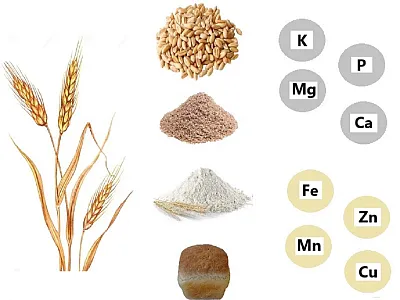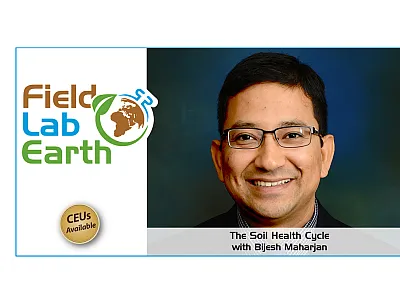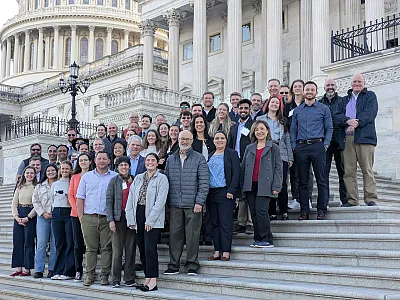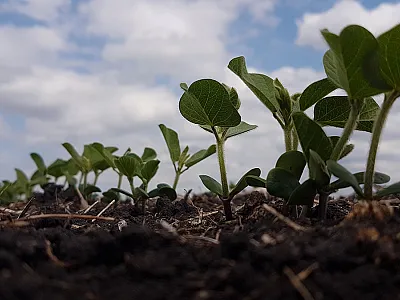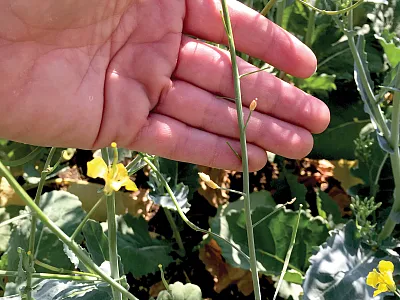Russell Taylor Named CCA Conservationist of the Year
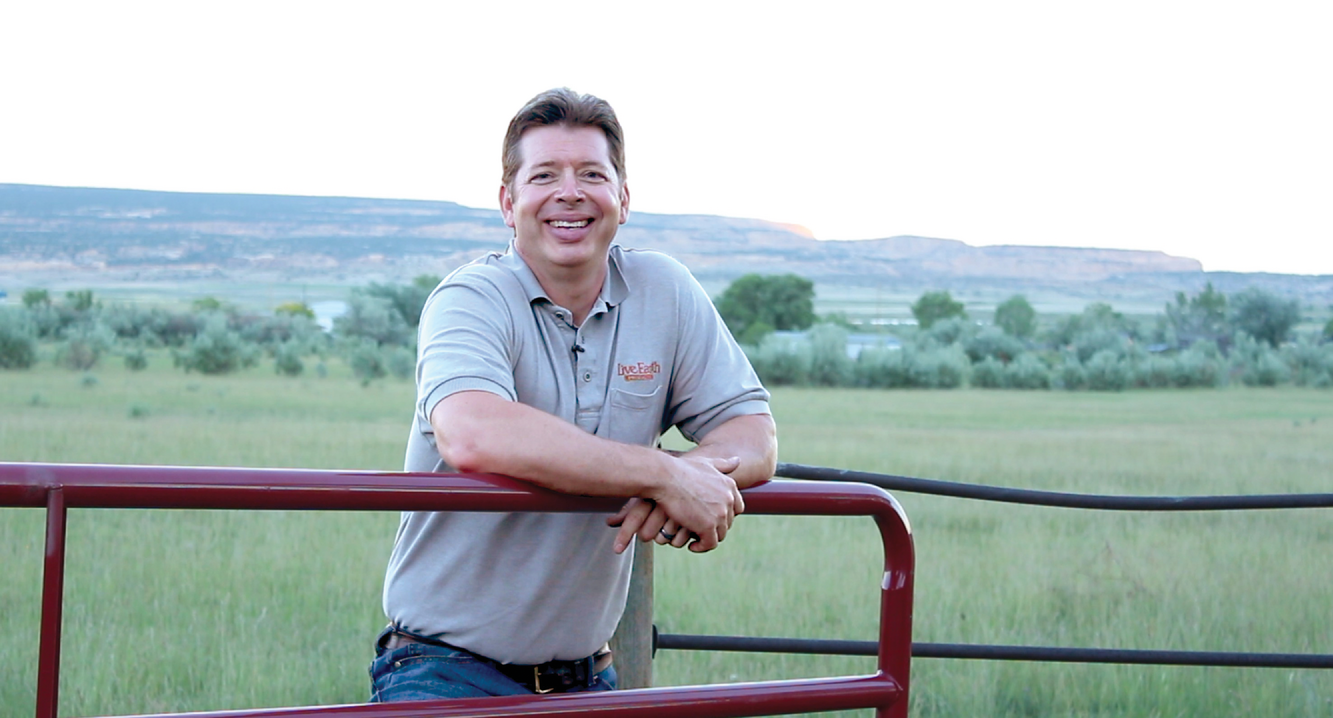
Advocating for rule changes to help farmers access information and products to aid in nutrient and water conservation has led Russell Taylor from his home in Emery, UT, to the hill in Washington, DC. As the 2023 Certified Crop Adviser (CCA) Conservationist of the Year, Taylor believes conservation is crucial for agriculture because producers are continually asked to do more with less. The award, which Taylor received in November 2023, recognizes a CCA who has demonstrated leadership in conservation within the agriculture industry.
Journey into Ag Conservation
Taylor began his ag conservation journey working alongside his family at Live Earth Products, a company that mines and manufactures humic and fulvic acid-based products. In the beginning, Taylor, his brothers, sisters, and mother were tackling the physical labor of the small start-up mining company run by his father. “Everything was done by hand. Dad would drill holes; I’d prepare the dynamite. After processing the mined humate, we would fill sacks one at a time, put a skid in the pickup and stack the sacks on top, drive to the co-op, and sell one pallet at a time,” Taylor recalls.
Continuing his education at Southern Utah University provided Taylor with opportunities to explore the agriculture industry outside of mining. Armed with an agriculture business degree, he began a lawn care business, assisting customers with soil testing and applying fertilizers.
With mining in his blood, he soon returned to the family business. Now, as Vice-President of Live Earth Products with 24 years of experience in agribusiness and 10 years as a CCA, Taylor is committed to reshaping the outdated regulations and language restricting the ag industry.
Moving Scientific Knowledge and Regulations Forward Together
Taylor noted that chemical regulation laws haven’t kept pace with the industry’s growing understanding of soil health and plant nutrient management.
The Federal Insecticide, Fungicide, and Rodenticide Act (FIFRA) impacts crop inputs and then exempts products that are not known pesticides, like fertilizer or soil amendments. “FIFRA struggles to accommodate modern agriculture innovations like plant biostimulants, which can assist farmers with soil health and plant growth. Unfortunately, plant biostimulants fall into a regulatory grey area, impeding their effective utilization in agriculture,” Taylor says.
“The categories excluding products from pesticide law have changed little since FIFRA was signed into law in the late 1940s. Right now, anything that accelerates plant growth can only regulated as a fertilizer or pesticide.”
Taylor notes that access to important products like humic and fulvic acid, which add carbon to soils, stabilize soil structure, and optimize nutrient and water availability, can be limited. “Suppliers often run into red tape registering and selling these products because of the outdated federal legislation and varied state rules.”
Pushing for Updated Regulations
Current regulations, drafted years before scientists and farmers understood the benefits of plant biostimulants, led to them being regulated in a way that doesn’t align with their use.
Taylor has been on a mission lobbying regulators to match regulations with current knowledge. He has had discussions with USEPA officials about the importance of updating regulations that apply to the agriculture industry and worked with the USDA to draft accurate language for the farm bill. Taylor also helped organize special sessions at the American Society of Agronomy’s 2016 and 2017 Annual Meeting to educate attendees on the conservation benefits of humic substances.
Summary
Rotation of annual crops with alfalfa is a highly effective means of reducing NO3–N leaching to aquifers and to the lateral flow of water to seepage areas with cost-effectiveness dependent on the commodity values. The 55% less NO3–N stock in the 0- to 24-ft soil depth and increased SOC, TSN, and SON in the agronomically important 0- to 4-ft soil layer with alfalfa in rotation may contribute to increased productivity and sustainability. Water quality is important to the public, and implementation of improved management practices by increasing alfalfa in crop rotations could be an effective way to protect this valuable resource.
Acknowledgments
Financial support for this work was provided by the Institute of Agriculture and Natural Resources at the University of Nebraska–Lincoln, the Robert B. Daugherty Water for Food Global Institute, and the USDA-ARS. Mention of trade names or commercial products is solely for the purpose of providing specific information and does not imply recommendation or endorsement by the USDA. The USDA is an equal opportunity provider and employer. Reprinted with permission, in a slightly modified form, from University of Nebraska-Lincoln CropWatch.
Dig Deeper
Singh, A., Afzal, T., Woodbury, B.,Wortmann, C., & Iqbal, J. (2023). Alfalfa in rotation with annual crops reduced nitrate leaching potential, Journal of Environmental Quality, 52, 930–938. https://doi.org/10.1002/jeq2.20473
Text © . The authors. CC BY-NC-ND 4.0. Except where otherwise noted, images are subject to copyright. Any reuse without express permission from the copyright owner is prohibited.




